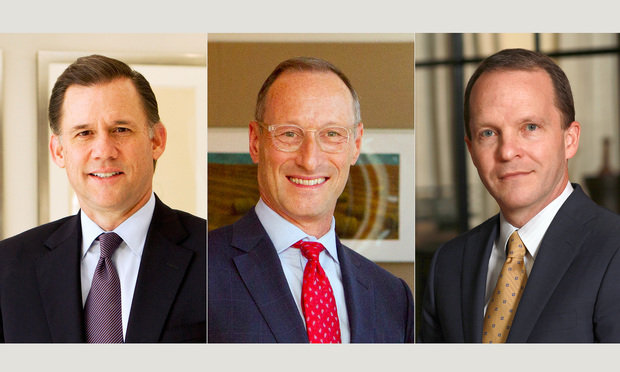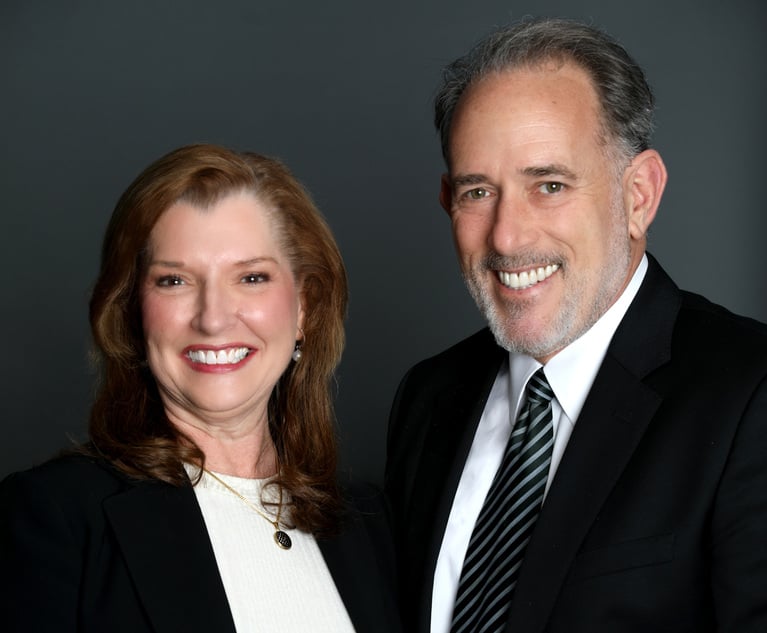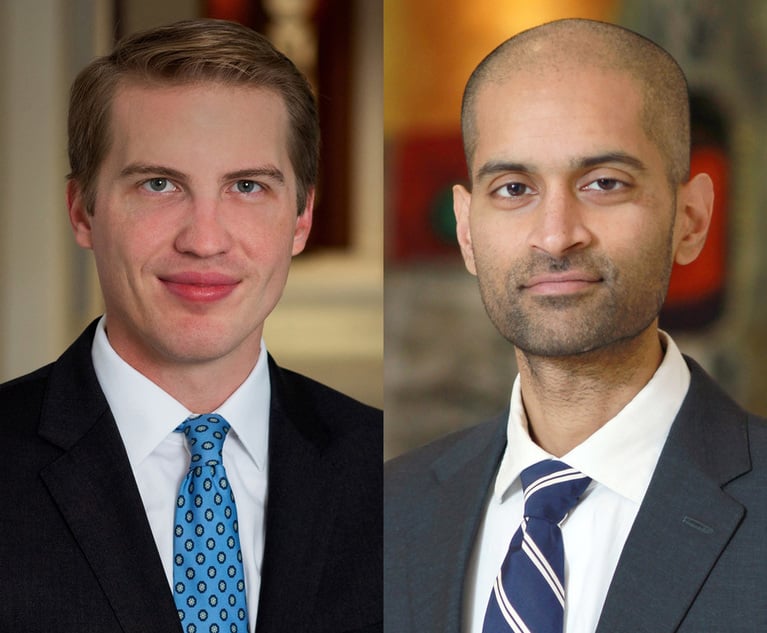Atlanta law firms are working to keep their own employees safe during the fast-developing COVID-19 pandemic, while also maintaining service to clients, by instituting remote-work policies on Monday.
The quickly spreading coronavirus is also affecting demand for legal services. While many corporate attorneys in employment law and other areas are being inundated with questions from worried clients about the crisis, defense and plaintiffs litigators are facing a slowdown in work, now that courts are closed and filing deadlines are suspended, some said. The economic slowdown is also starting to impact deal work.
As of Monday, the largest firms in the city, including Alston & Bird, King & Spalding, Eversheds Sutherland, Kilpatrick Townsend & Stockton and Troutman Sanders, have asked their lawyers and staff to work remotely for at least the next two weeks. But they have not closed their offices, which they said need to stay open to support work for clients.
“We have asked everyone to work remotely through at least the end of the month—and then we will assess, based on the latest public health information,” said Alston’s chairman, Richard Hays.
“All of our lawyers and timekeepers have laptops that mirror the capabilities they have in the office—and we have a robust IT infrastructure,” Hays added. “The hope and the effort is to be socially responsible—to take the steps we need to take to knock this thing out, while at the same time being available to our clients.”
Rotating teams of skeleton staff on-site plus others working remotely will continue to provide core administrative support, such as reception, mail, copying and conferencing, said representatives from King & Spalding; Ogletree, Deakins, Nash, Smoak & Stewart; and other large firms.
Ogletree, one of the nation’s largest labor and employment firms, is sending a daily COVID-19 email update to clients with the latest developments and recommendations. The firm, like many, has created a COVID-19 FAQ website page on federal labor and employment laws, which was viewed more than 16,000 times last week, according to a spokesperson.
Eversheds Sutherland’s U.S. co-chairman, Mark Wasserman, said that last week the firm successfully tested its remote capacity—such as extra load on its VPN—by having everyone in its New York office work offsite. For at least the next two weeks, the firm is operating on a voluntary remote-work policy, he said.
Client concerns around COVID-19 have caused an uptick in work for cyber, privacy, employment-related, regulatory and contract issues, said Wasserman, but he forecasts “a slowdown in overall legal work,” in the short term. With commerce down, deals are slowing, he said, and litigation work is being delayed due to court closings.
Court Shutdown
For the plaintiffs bar, work has slowed drastically, said Darren Summerville of The Summerville Firm. “Jury trials and filing deadlines have been suspended in every [Georgia] county, so there are no hearings, no trials—and no filing deadlines.”
“It’s the right move from a public health perspective, but it’s difficult if you need to move litigation forward as a business model,” Summerville said. “For smaller plaintiffs shops that don’t have billable hours as an income stream—and with judicial orders that essentially put a hiatus on courts—it’s worrisome.”
Summerville said plaintiffs and defense litigators are voluntarily trying to move cases forward with video depositions and conferences. “We’re trying to work things out that otherwise would have been done over lunch or dinner—and trying to keep the ball moving forward as best we can.”
At Swift Currie McGhee & Hiers on Monday, managing partner Terry Brantley was one of a handful of people in the litigation defense firm’s 100,000 square-foot midtown office—yet he closed his door and affixed a note asking people not to come inside.
“It’s easier to be more cautious,” said Brantley, expressing a wish that everyone would shut their activities down as much as possible. He encourages frequent hand-washing, lunches brought from home and a quick exit to the garage.
The shutdowns of many court functions around the country, he said, are “a heavy burden,” because they delay progress in cases. He said counsel on both sides have been “willing to work together” to handle the disruptions.
Family Law Uptick?
One of the city’s larger family law firms, Kessler & Solomiany, was also on a voluntary remote-work basis as of Monday. Less than half of the firm’s 25 lawyers and staff were in the office Monday, founder Randy Kessler estimated, adding that they are spread across a lot of office space.
Self-quarantining and anxieties about the economic impact of the pandemic are already increasing calls from prospective clients considering divorce, Kessler added. “For people that have relationships that are just tolerable, it may be because they are not in front of each other morning, noon and night.”
The court closures are also affecting current divorce cases, Kessler said. With a moratorium on trials for the near future, he explained, some clients “will have no choice but to settle, because they want out so badly. If someone wants out more than the other party, they will give up more to resolve the case.”
Because the firm’s divorce clients are already experiencing high levels of stress, he asked lawyers and staff in a Sunday email announcing the remote work policy to stay responsive and “give clients comfort.”
“We are expecting heightened communications from clients needing reassurance and hand-holding,” he said in the email. “Their lives are already tense, and the situation that exists worldwide will probably make it worse. We must be the voice of calm and reason and hope.”
Nonprofit law firms are also affected. The Atlanta Volunteer Lawyers Foundation and the Atlanta Legal Aid Society have closed their offices to the public, with staff working remotely for at least a week at AVLF and two weeks at Legal Aid, according to emails from AVLF executive director Marty Ellin and Legal Aid leader Steve Gottlieb.
The public health crisis particularly affects the low-income families and individuals that the legal nonprofits serve, Ellin added in his email, as well as contributions to legal nonprofits.
Jonathan Ringel contributed to this report.
Read More:
‘All Hands on Deck’ for Labor and Employment Firms Facing Flood of Employer Questions
NOT FOR REPRINT
© 2024 ALM Global, LLC, All Rights Reserved. Request academic re-use from www.copyright.com. All other uses, submit a request to [email protected]. For more information visit Asset & Logo Licensing.


 Richard Hays (from left), Mark Wasserman and Darren Summerville. (Courtesy photos)
Richard Hays (from left), Mark Wasserman and Darren Summerville. (Courtesy photos)






